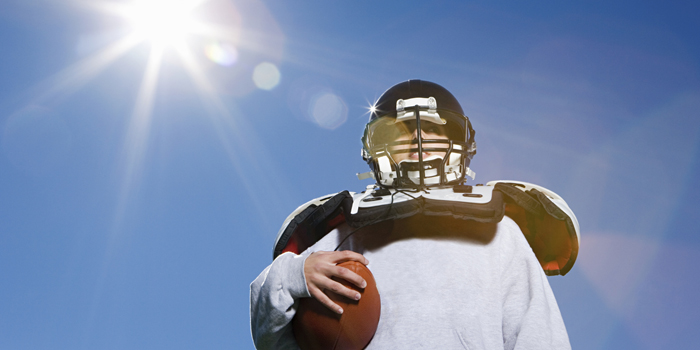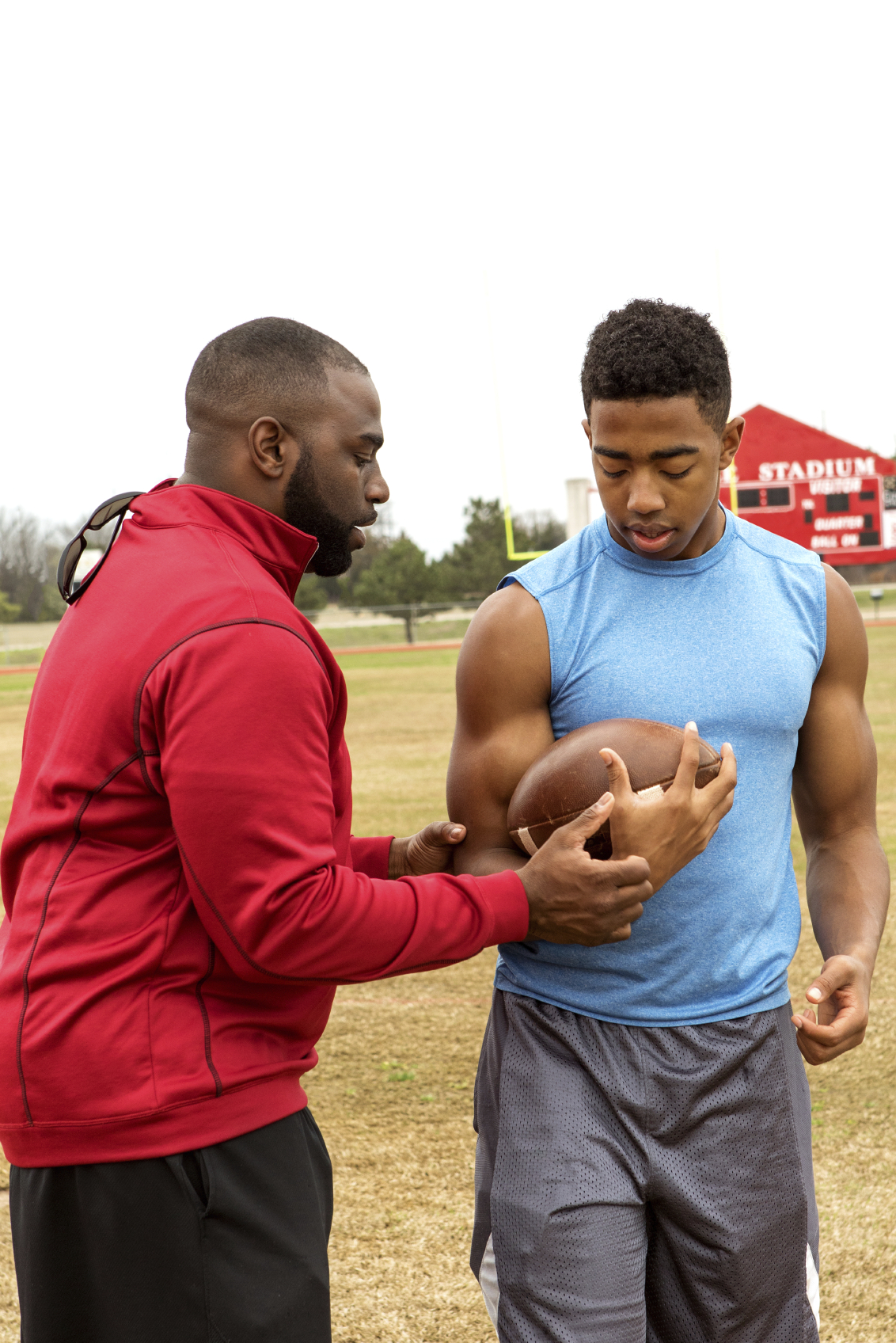
I was sitting with The Girl looking at Instagram. She was sharing all of her middle school friends' posts who are now training and have a coach of one form or another: speed, skill/sport specific, "trainer" — whatever you want to call it, they have them. Parents are paying a lot of money and the kids are posting all sorts of training videos and pictures. As I was looking and connecting the dots with my own professional experiences, I died a little inside when I realized this is now trendy in middle school land on up through high school.
I have mixed feelings about this. As a parent, teacher and business owner in the field, I LOVE kids being active. However, this target group of kids are already active, playing multiple sports, traveling for tournaments, etc. So in this case, that point is sort of irrelevant.
As a parent, I am guilty as charged and have my own kids working with a kicking coach, weightlifting coach, throws coach and training with Big Bald. My own justification is that we provided opportunities for the kids to play multiple sports and then choose where they want to spend their time and energy. We made very calculated decisions where our kids would train and with who, based on each professional's education, skill set, reputation and ability to produce measurable results.
RECENT: The Courage of the Female Football Player
As a teacher, I am not a fan at all of middle school kids lives being ruled by athletics. Once additional required or "strongly encouraged" training is implemented, the focus on the development of the child is lost. Kids have enough pressure on them. This win-at-all cost mentality is consuming middle school children, creating exhausted children and families, not to mention the small fortune families pay for fees, coaching, traveling, and other expenses. As a business owner in the field, it all makes me cringe. There are some serious issues that need to be considered and addressed, before any athlete chooses to work with a coach. Not every child athlete should be working with a coach. Unfortunately many parents do not understand what they are looking for, what they are paying for, and if the efforts and costs are worthwhile. Prior to embarking on this path, there are essential questions and considerations parents and families should be considering.
Questions Parents Should Ask Before Choosing A Training Program or Coach
1. What is the purpose of this supplemental training?
The reality is that many kids hop from program to program because a friend or team is training at the newest and novel program on the market. On some level, parents have an expectation that their children will become better athletes through this specialized training. Often times, this "specialized" training is nothing more than an organized exhaustion class. You know the saying, any coach can make a kid tired? That applies. Run sprints until you puke, do multiple sets of 100 rep body weight squats followed by running more sprints.
It's critical to get right down to the basics. Why are you having your child work with a coach or trainer? What skills, abilities or capabilities are you expecting to improve? You need to have a clear vision and understanding of what you are expecting from this process.
2. What is the financial/political gain of the trainer, coach or program?
Alarmingly, many recreational and public school teams are requiring athletes to train with a specific program in addition to or in place of training with the team with a significant cost to each family. It is reasonable for any parent to ask and take note of the financial relationship between the trainer, team, and league.
If an athletic coach also works, coaches, or has direct financial gain from the required/encouraged training facility, that is a red flag. In private and rec sports, the standard here might be a tiny bit different but not much. However, when public school kids are required to pay and participate in supplemental training in order to play for their school team, this is cause for concern. Not only is this unethical and undermining the essence of what a public school is or should be, many school districts have policies prohibiting such practices. As a parent it is your responsibility to understand what your child is getting involved in, why, and who the key players are.
3. How are you measuring results?
This is pretty simple. Look back to item one and the purpose for enrolling your child into a specific program. How will results be measured to indicate the efficacy of the program?
RELATED: Project Jonah: The Final Report
If your expectation is to improve on the field speed and choose a speed class for your child, what assessments or evaluation tool will be used to measure this progress? This part is critical and imperative and really quite simple. If the program or coach isn't yielding measurable results, you're wasting your time and money.
Regardless of the goal, qualified professionals are able to create meaningful formative and summative assessments throughout the process that are directly tied to expected outcomes. As a consumer, it is a reasonable expectation to be provided this information. Reputable programs will already be collecting this data on a regular basis, because it is used to shape client programming for maximum outcomes. If the team is following a generic, one-size-fits-all program, this data will likely not exist. If the data does exist, understand how the data directly links to your initial goal and if there is a direct correlation between the assessment and expected outcomes.
Specialized training is just that: specialized to each unique individual, his/her abilities and goals. Group team training may have some benefits from a team building perspective. However, when individual families are footing the bill for supplemental training, the standards of accepted practice need to be increased to include accountability. Without that standard of accountability, many youth athletes are spending precious time and energy just to go get tired and worn out.
As the Meathead Mom, I found this story oddly amusing. The Girl told me she commented on one of the boy's squat videos, when she noticed his his poor form. She provided suggestions to help correct his technique. Needless to say, the boy wasn't receptive to her feedback and blocked her. When a 12-year-old girl knows how to identify bad form but local “specialists” do not, there is a significant problem in this field that needs to be addressed in a more proactive manner.












http://www.elitefts.com/training-logs/benchohp-article-follow-up-as-biz-owner/
http://www.elitefts.com/training-logs/benchohp-article-follow-up-as-biz-owner/